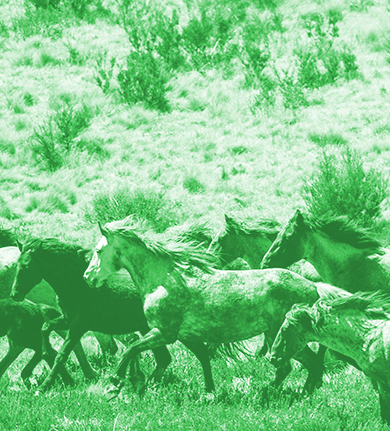Barilaro denies brumby change
 The NSW Government says it is not changing its plan for brumby management.
The NSW Government says it is not changing its plan for brumby management.
Last year, the Government rejected plans to reduce the brumby population by 90 per cent over 20 years, and instead enacted the ‘Brumbies Bill’.
The bill recognises the cultural value of the horses and prohibits lethal culling, while also setting up a community advisory panel to advise the Environment Minister on a new management plan.
The panel has not been established yet.
But a recent public forum in Jindabyne, NSW Deputy Premier John Barilaro appeared to back the removal of 50 per cent of feral horses immediately.
Conservationists said it was surprising to hear a firm commitment to reduce the wild horse population.
“What the Brumby Bill does do for the first time is put all the stakeholders around the table where we all agree that we need a 50 per cent reduction immediately,” Mr Barilaro told the audience in Jindabyne.
“We haven't achieved that in decades but we can by bringing the stakeholders together, through the plan of management and an advisory committee with a broader range of representation and then a scientific committee advising the Minister.
“We have a balanced approach, a genuine approach to end the war.
“The bill only recognises the cultural connection, nothing more, nothing less.
“Let's get on with the plan of management, once the advisory committee is in place. Let's get on with the reduction, to try and aim for a 50 per cent reduction immediately.
“And then we work out like Labor, who agree with the scientists, that we need to reach the target of 600 horses in the park, in areas that aren't as fragile.”
The Snowy Brumby Sustainable Management Group noticed the apparent shift.
“I do have some concerns that he has adopted that new position, which is a shift, a major shift in my view from his original position that he quoted verbatim when he was selling the Brumbies Bill to the public and to Parliament,” the group’s president told the ABC.
“So I do have some concerns with Mr Barilaro's new attitude, he seems to be what a cynic might call ‘vote-chasing’.”
Mr Barilaro says it is not the first time he made such comments.
“Unless someone has been hiding under a rock, I've been saying that from the outset. Unfortunately, people weren't listening and attempting to politicise what is a very balanced approach,” Mr Barilaro said.
“I'm confident I have talked about the immediate reduction of numbers and have used the ‘50 per cent target’ on plenty of occasions.”
Mr Barilaro also called for an independent audit of the horse population.
“The first thing we need to do is get a handle on the numbers because we don't know whether there are 6,000, 8,000 or 10,000 horses in Kosciuszko National Park — that will determine how many are left in the park,” he said.







 Print
Print